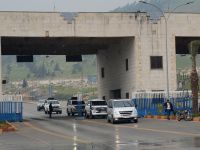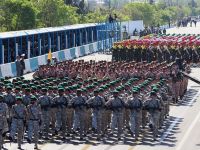- Two Chinese energy companies have reportedly offered to purchase 5 percent of Saudi Aramco.
- Saudi Aramco had previously announced it could list 5 percent of its business in 2018 in a historical $100 billion IPO.
- The recent Chinese deal raises questions as whether Saudi Aramco will proceed with an IPO or simply sell to the highest bidder.
Two major Chinese energy companies have reportedly moved to buy stakes in Saudi Aramco ahead of its IPO.
- Saudi Arabia's Founding Father Foresaw Aramco’s Value 100 Years Ago
- Why Did Saudi Aramco Launch A Subsidiary In India?
Reuters quoted industry sources as saying that PetroChina and Sinopec had recently submitted their official proposal to purchase the shares of the world’s biggest oil producer directly.
This followed an announcement by Saudi Crown Prince Mohammed bin Salman last year that the kingdom was considering listing about 5 percent of Aramco in 2018 in a deal that could raise $100 billion, if the company is valued at about $2 trillion as hoped.
"The Chinese want to secure oil supplies," Reuters quoted an unnamed industry source as saying. "They are willing to take the whole 5 percent, or even more, alone."
The initial public offering (IPO) of Saudi Aramco is the centerpiece of an economic reform plan to diversify the Saudi economy beyond oil and it would also provide a welcome boost to the kingdom's budget which has been hit by low oil prices.
- Saudi Aramco Announces Key Appointments Ahead Of IPO
- Theresa May Is Trying To Get Saudi Aramco's IPO To List In London Instead Of New York
- Toronto Joins The Race For Saudi Aramco's IPO
But the IPO plan has created public misgivings that Riyadh is relinquishing its crown jewels to foreigners cheaply at a time of low oil prices. Some Aramco employees would like the whole idea to be shelved, Reuters further quoted sources as saying.
Last December, Saudi Arabia announced plans to sell 49 percent of Aramco - which has a daily oil production capability of 12.5 million barrels - as part of its attempts to lower its deficit.
Officials in Riyadh were quoted as saying at the time that the sales would be carried out over a 10-year period, and that the income from the sales will be spent "at home and abroad."








